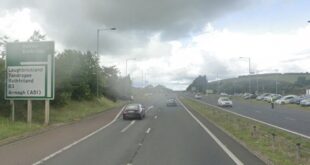Last month we looked at data from a survey carried out by Driving for Better Business (DfBB) into leadership attitudes to a variety of driving-at-work risk factors. The report highlighted some worrying findings regarding directors’ (lack of) awareness of risk, what needed to be in a policy, and the communication of that policy. The responses from more than 250 executive directors and 1,000 drivers indicated that many directors were simply not aware of the significant risks to their business from failing to discharge their duty of care correctly and were, therefore, not managing those risks.
The article was written before the findings were published. However, when the data was released to the media, the subject that caught most attention was the attitudes and behaviours considered acceptable around mobile phone calls to employees while they were driving for work.
Risk of distraction
The research showed that nearly a half of the leaders polled (49%) expect their employees to answer their phone at any time, including the times when the employee is at the wheel during a business journey. While using a hands-free phone is legal, it is now widely accepted there is still a significant risk of distraction.
The survey results indicate that not only do some leaders fail to appreciate this potential for distraction, a large number (56%) of those polled consider it safe to continue a conversation with an employee using a hands-free solution while driving.
And that distraction appears to have real consequences – from both a staff safety and wellbeing perspective, as well as increased business costs.
A little less than half of employees surveyed (45%) said they experience stress when they receive a call from their boss while driving and 37% said a phone call from a colleague while they are driving can cause them stress.
Employees cite this not only as a source of stress, but they also consider the distraction to be a contributing factor to causing incidents while driving, potentially jeopardising their safety.
On average one-in-six (17%) of drivers surveyed had been involved in an incident due to taking a call from a colleague while driving for work with men slightly more prone to incidents at 19% than women at 15%.

The age profile
That figure of one-in-five male drivers reportedly being involved in an incident while on the phone is staggering in itself. However, it was even more striking when DfBB looked at the age profile.
The subject of young drivers and their greater likelihood of crashing has again been in the news over recent weeks with restrictions on carrying passengers and/or driving at night offered as possible ways of reducing the risk.
Within the 25-34 age group, the proportion of drivers saying they’d been involved in an incident while driving and taking a call rose to one-in-four (25%) and among those under 24 it rose further to a concerning one-in-three (34%).
Not only do these incidents put the drivers at significant risk, they also represent a significant risk to the business for both disruption and cost. Any incident resulting in damage to the vehicle is going to disrupt the rest of the day’s schedule with delays to meetings or deliveries.
Then there is the obvious repair costs and time spent dealing with insurers and rental companies for a replacement vehicle. Less obvious, but the biggest hidden cost to the company, is staff absence following a serious incident.

Somewhere safe to stop
While close to half of directors expect their staff to answer a call while driving, only three-in-five said they would carry on the conversation once they knew the employee was driving with almost two-thirds of directors saying they would ask the employee to call them back once they had found somewhere safe to stop.
Unfortunately, drivers don’t always find a safe place to stop. Two-in-five said they only sometimes find a safe place and 6% said they rarely find one.
But therein lies another potentially fatal finding. One-in-20 bosses and a hard to believe one-in-eight drivers thought it was safe to stop and take a call on the hard shoulder of a motorway.
Stopping on the hard shoulder to take a call is illegal. A driver will very likely be picked up on CCTV and either the police or a traffic officer alerted to attend in case the driver is in trouble. If you are simply on the phone, the error of your ways will be explained in rather blunt terms and you will be quickly moved on.
Think about the number of times you have seen an HGV, maybe on foreign plates, wandering around in its lane, occasionally crossing the white line. Perhaps the driver is fatigued, or on the phone themselves. Now imagine them wandering enough to strike a vehicle parked on the hard shoulder – it happens more than you might like to think.
A comprehensive ‘driving at work’ policy should cover mobile phone use and motorway driving making it clear that the hard shoulder is not a safe place to stop and take a call.
What is clear from the research is that leaders need to better understand the risks of employees receiving (and making) calls while driving for work. Employees should also be empowered to influence and implement changes in policies on driving for work.
While the survey did not explore whether the organisations polled include specific guidelines on making or receiving calls as part of their organisational driving policies, experience tells us that most companies that have gone to the trouble of creating a proper driving for work policy have recognised that mobile phone use is a risk and have included guidance on use, whether that be allowing hands-free calls or banning calls altogether.
One of the key problems is communication. All bar 10% of the drivers surveyed identified themselves as grey fleet and just less than half of them said they hadn’t been shown the company’s driving for work policy.
That leaves a significant number of drivers, using their own cars, who have no idea how their employer wants them to deal with mobile phone calls when driving.
Many companies that have banned phones while driving for work have learnt to work in different ways so there is minimal loss.
Concise messages
One such company is DfBB Champion and winner of the Fleet News Large Fleet of the Year award, Royal Mail. As reported in January’s Fleet News, Mark Bromhall, Royal Mail’s road safety manager, confirmed that communication was key – promoting concise messages, with executive support, across an array of different media involving briefings, emails, films, even WhatsApp was crucial to winning hearts and minds.
Royal Mail also engaged with its managers as it knew this was an essential part of showing drivers how serious it was.
Of those companies who have completed the DfBB online fleet risk assessment, 46% of companies had banned staff from using mobile phones while driving, but only 26% had also told office-based staff not to phone their drivers.
This presents a significant – and stressful – dilemma for drivers who have been told not to use the phone, yet whose managers keep calling them. How likely are those drivers to obey the policy if doing so risks upsetting their manager?
Using a hands-free mobile phone while driving is legal and there is unlikely to be new legislation in the foreseeable future to ban them. It is therefore up to fleet risk decision-makers and company directors to ensure they recognise all the risks and put policies in place to manage those risks.
Source link



